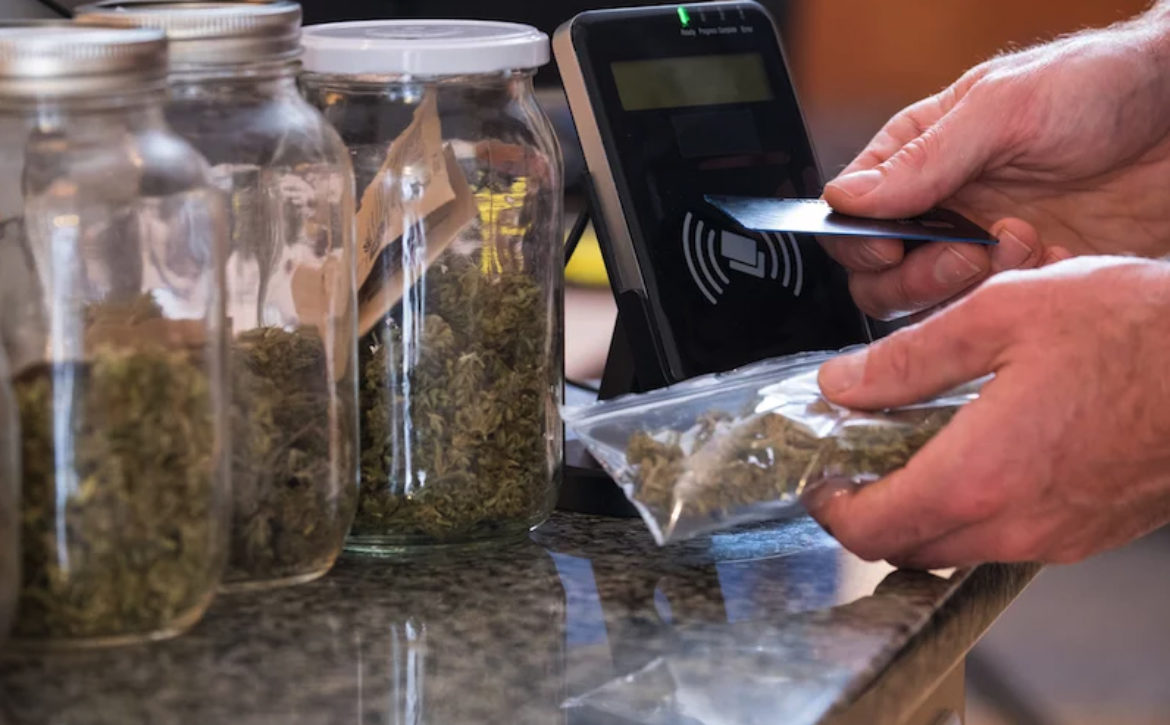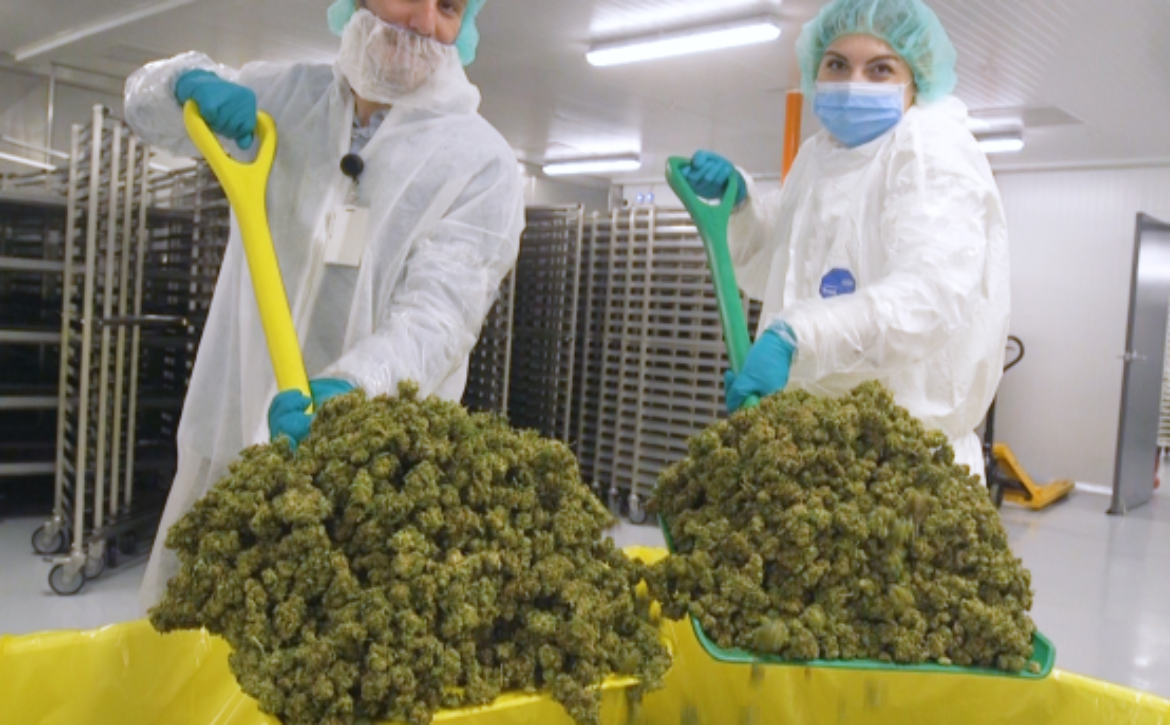Illinois’ Cannabis Debut Beat All States Except One
The state logged $39.2 million of adult-use recreational marijuana sales in January, or $3.07 in sales per resident, according to New Frontier Data, a cannabis research company. Those are the second-highest sales per capita during the first full month of legalization among eight other states where adults can buy pot for recreational use. Nevada was the highest at $8.88 per capita in July 2017, a figure bolstered by tourism, according to Kacey Morrissey, New Frontier’s director of industry analytics.
Illinois’s performance is “typical for first month’s sales,” Beau Whitney, executive vice president and senior economist at New Frontier, said in an email. “Illinois is fairly strong out of the gate.”
Illinois “had the most successful roll out in the industry,” Boris Jordan, executive chairman of Curaleaf Holdings Inc., said in an interview. Curaleaf is the largest U.S. cannabis company and its pending purchase of Chicago-based GR Companies Inc., better known as Grassroots, is expected to close in the second quarter, giving it a foothold in the Illinois market.
Given Vermont does not have recreational dispensaries and Maine has not officially begun adult-use cannabis sales, these two states were not included in the data, according to New Frontier’s Morrissey.
Companies are rushing to ramp up production in Illinois given demand is expected to exceed supply for at least another year, Curaleaf’s Jordan said. Products sold in Illinois must be from cultivators, growers or dispensaries in the state as marijuana is still illegal under federal law.
The first month, especially the early days, saw long lines and some shortage of flower, according to the Cannabis Business Association of Illinois. The state has deliberately tried to temper growth and manage expectations to balance social equity, criminal justice reform and revenue, said Toi Hutchinson, senior advisor for cannabis control to Governor J.B. Pritzker.
“I didn’t have a $40 million benchmark,” Hutchinson said in a telephone interview on Monday after the sales data was released. “The strong start is what we hoped for” but Hutchinson said the sales figure “is surprising to us.”
About a quarter of the state’s take will go toward community reinvestment partly to reverse some of the challenges from past drug policy, according to Hutchinson. Collections may also help chip away at Illinois’s $6.2 billion of unpaid bills and $137 billion of pension debt. Tax collections on legal pot are forecast to jump from $34 million in 2020 to $375.5 million in 2024, according to the Illinois Department of Revenue.
Revenue from the industry is hard to predict. First month sales aren’t necessarily indicators of the future, according to Alexandria Zhang, research officer for The Pew Charitable Trusts.
Some evidence also indicates growth and revenue collections “tend to slow as markets mature” even after strong initial performance, Zhang said in an interview. “Early revenue collections don’t mean the strong growth will continue in the long run.”
Illinois’s Pritzker will unveil his 2021 budget on Feb. 19 and the role marijuana tax collections will play remains to be seen. During his “State of the State” speech last week, he mentioned legalization as “a chance to collect tax revenue from the residents of Wisconsin, Missouri, Iowa and Indiana,” where recreational cannabis is illegal. He also highlighted the criminal justice reform that his administration also enacted, including 11,017 pardons for people with low-level cannabis convictions under the state’s new cannabis law.

Extrapolating from Colorado’s legalization experience, Illinois sales will amount to $3.7 billion in five years, Cantor Fitzgerald analyst Pablo Zuanic wrote in a note published Feb. 4.





